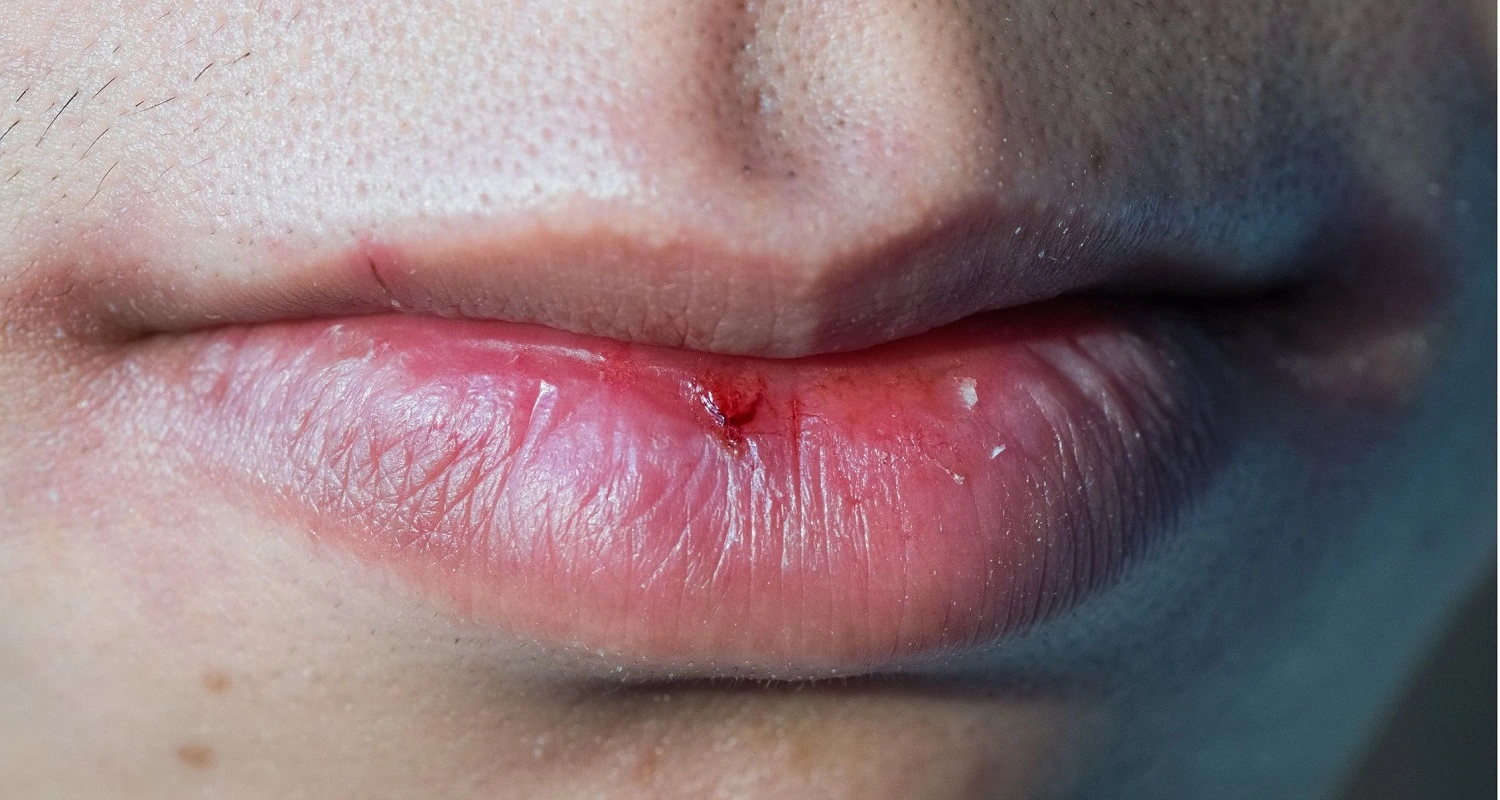Last Updated on: 13th December 2025, 06:04 am
Waking up with a salty taste in your mouth is an experience that many people have had, and it is not a very pleasant way to start the day. Upon occasion, the taste is metallic and causes discomfort.
A salty or metallic taste in the mouth is linked to different health conditions that cause this annoying sensation.
10 Situations that Produce a Salty Taste in the Mouth
1. Dry mouth, known as xerostomia or sialorrhea, occurs when the salivary glands do not produce enough saliva. It can also occur due to excessive consumption of tobacco.
People who suffer from dry mouth may notice a metallic or salty taste.
With the passing of the years, dry mouth is more frequent. In other words, it is a normal consequence of aging. It is also a sign of some health conditions such as diabetes. In addition, dry mouth for long periods increases the possibility of cavities.
Bad breath, sore throat, sticky mouth sensation, thick saliva, hoarseness, and a split (ribbed) tongue are symptoms linked to xerostomia. It is recommended not to consume spicy or salty foods if the situation persists.
It is recommended not to consume spicy or salty foods while the situation persists.
2. During pregnancy, hormonal changes can cause inflammation of the nose known as rhinitis of pregnancy. It results in a runny nose, a post-nasal drip, and sometimes a salty taste. This harmless condition disappears a few weeks after the end of the gestation period.
During pregnancy, any discomfort from the salty taste can be managed with the use of saline nasal sprays.
Dental pain during pregnancy is a concern often attributed to hormonal fluctuations and increased gum sensitivity. Regular dental check-ups and proper oral hygiene are crucial during this time to address and prevent discomfort while ensuring the health of both the mother and the baby.
3. Autoimmune diseases cause the body to attack the moisturizing glands, including the tear ducts and salivary glands. Lupus and rheumatoid arthritis are health conditions that present a higher risk of contracting Sjögren’s Syndrome, which affects the salivary glands and causes dry mouth, as well as dysgeusia, a perception of a continuous bad taste in the mouth that can be salty, rancid, or metallic.
If you experience dry mouth and have been diagnosed with an autoimmune disease, Consult your treating physician, who will prescribe appropriate medications.
4. Dehydration affects the quality of saliva. The salivary fluid contains a small portion of salt and when you do not have a good level of hydration, saliva production is reduced and the salt is concentrated, generating a salty taste.
5. Lack of nutrients can develop in a short time or over several years. This lack produces a salty or metallic taste in the mouth. In this case, a doctor or nutritionist should be consulted to identify which nutrients or vitamins are deficient and the patient must follow the professional’s recommendations.
6. Postnasal drip is caused by an infection in the nasal passage over a long period. This drip flows down the throat and can be the cause of a salty taste in the mouth. The dripping can affect the person’s senses of taste and smell.
7. Some medications can cause dry mouth as a side effect, causing a salty or metallic taste. Medications that can have this side effect are pain relievers, antibiotics, antidepressants, antihistamines, diuretics, chemotherapy, and sedatives used for anxiety or sleep disorders.
8. Gastroesophageal reflux disease (GERD) is another condition that can cause a salty or sour taste in the mouth. It occurs when stomach acid reaches the esophagus, causing acid reflux. Many people with GERD also experience heartburn, a chronic cough, or feel like something is stuck in their throat.
Medications that neutralize stomach acids or reduce their production relieve discomfort. Not treating GERD can have downstream effects on the esophagus and lead to other health problems.
9. Oral bleeding can be another cause of a salty or metallic taste in the mouth. Eating spicy foods or very aggressive brushing can cause bleeding in the mouth.
Bleeding can also be a symptom of thrush, an infection that causes burning and white plaques in the mouth and, in some cases, a salty taste. If the gums bleed after brushing or flossing, it is a sign of possible gingivitis, which can cause gum inflammation and pain, a condition that leads to periodontal disease.
Faced with persistent oral bleeding due to the practice of oral hygiene, the recommendation is to consult a dentist.
10. Infections in the respiratory tract, ear, or mouth: Sometimes, a salty taste in the mouth can be caused by gum disease, mouth abscesses, sinusitis, or other respiratory infections, including otitis. These conditions are closely connected due to their proximity, as the presence of pus or fluid resulting from bacterial growth and cell deterioration can lead to a salty, and sometimes bitter, taste in the mouth. This is one of the signs and symptoms commonly associated with gum disease.
People living with end-stage renal failure frequently manifest a metallic taste sensation in the mouth, which may be a consequence of a high level of urea in the body, low levels of zinc, changes in metabolism, the consumption of medications prescribed in their treatment, fewer taste buds, changes in the flow and the composition of saliva.
Suggestions for Home Management
• Drink plenty of water. The medical recommendation is to drink between 6 and 8 glasses of water daily to stay hydrated.
• Assume adequate oral hygiene with frequent brushing and regular use of dental floss.
• Use an antibacterial mouthwash.
• Chew sugarless gum.
• Reduce the consumption of alcohol and tobacco.
• Avoid greasy or spicy foods.
People with heart or kidney disease must limit fluid intake due to the diuretic medications they require in their treatments.
When to Speak to the Doctor for a Salty Taste in the Mouth
It is recommended to consult the treating physician in the following cases:
• Voice changes or hoarseness
• Lump in the neck
• Inflammation of the salivary glands near the ear or under the jaw.
• Difficulty chewing or eating.
• In cases of diagnosis of diabetes, heart disease, kidney disease, or autoimmune condition.
It is recommended to take into account that, although the salty or metallic taste in the mouth does not mandate special care if the discomfort persists, you should consult a health professional, especially when you already have a diagnosis of heart disease, diabetes, kidney failure, or an autoimmune disease.
If oral bleeding caused by brushing and flossing occurs and it does not reduce, the situation should be evaluated by a dentist to prevent a possible periodontal disease, facilitating better oral health and comprehensive well-being.
Frequently Asked Questions
What can cause a salty taste in the mouth?
It could be due to dry mouth, dehydration, hormonal changes, autoimmune diseases, nutritional deficiencies, certain medications, GERD (Gastroesophageal Reflux Disease), oral bleeding, infections, or kidney failure.
Why can pregnancy cause a salty taste in the mouth?
During pregnancy, hormonal changes can cause nasal inflammation known as pregnancy rhinitis, which can lead to postnasal drip and in some cases a salty taste. This is a temporary phenomenon that usually disappears after pregnancy.
How are autoimmune diseases related to a salty taste in the mouth?
Autoimmune diseases can cause the body to attack its own moistening glands, including tear ducts and salivary glands. This can lead to Sjögren’s syndrome, affecting the salivary glands and causing dryness in the mouth and dysgeusia, i.e., a continuous perception of a bad taste that can be salty or metallic.
What recommendations are there for managing a salty taste in the mouth at home?
Some home management suggestions include staying well-hydrated, maintaining proper oral hygiene, using antibacterial mouthwash, chewing sugar-free gum, reducing alcohol and tobacco consumption, and avoiding fatty or spicy foods.
When is it advisable to consult a doctor for a salty taste in the mouth?
It is recommended to consult a doctor if there is hoarseness, swelling in the neck, inflammation of the salivary glands near the ear or under the jaw, difficulty chewing or eating, or if you have been diagnosed with diabetes, heart disease, kidney disease, or an autoimmune condition.
Share:
References
1. Cortés, Ignacio Antonio et al. (2022). Taste disorders: update and clinical approach. Journal of Otolaryngology and Head and Neck Surgery, Vol 82 – No. 2. https://www.scielo.cl/scielo.php?script=sci_arttext&pid=S0718-48162022000200270&lang=es
2. Ear, Nose & Throat (2022). What`s Causing that Salty Taste in Your Mouth? https://health.clevelandclinic.org/salty-taste-in-mouth/
3. González J. Emilio et al (2009). Xerostomia: Diagnosis and Clinical Management. Clinical Journal of Family Medicine, Vol 2 – No.6. https://scielo.isciii.es/scielo.php?script=sci_arttext&pid=S1699-695X2009000100009
4. Johnson, Jon & Barrell Amanda (2022). Why do I have a salty taste in my mouth? https://www.medicalnewstoday.com/articles/321175
5. Chimenos Küstner, E. (2014). Dry mouth and burning mouth. Advances in Odontostomatology. Vol 20 – No. 3. https://scielo.isciii.es/scielo.php?script=sci_arttext&pid=S0213-12852014000300003
6. Marcin, Ashley (2018) Salty Taste in Mouth: Why It Happens and What You Can Do. https://www.healthline.com/health/dental-and-oral-health/salty-taste-in-mouth
7. National Institute of Dental and Craniofacial Research (2018) Taste Disorders. https://www.nidcr.nih.gov/health-info/taste-disorders
-
Nayibe Cubillos M. [Author]
Pharmaceutical Chemestry |Pharmaceutical Process Management | Pharmaceutical Care | Pharmaceutical Services Audit | Pharmaceutical Services Process Consulting | Content Project Manager | SEO Knowledge | Content Writer | Leadership | Scrum Master
View all posts
A healthcare writer with a solid background in pharmaceutical chemistry and a thorough understanding of Colombian regulatory processes and comprehensive sector management, she has significant experience coordinating and leading multidisciplina...



















